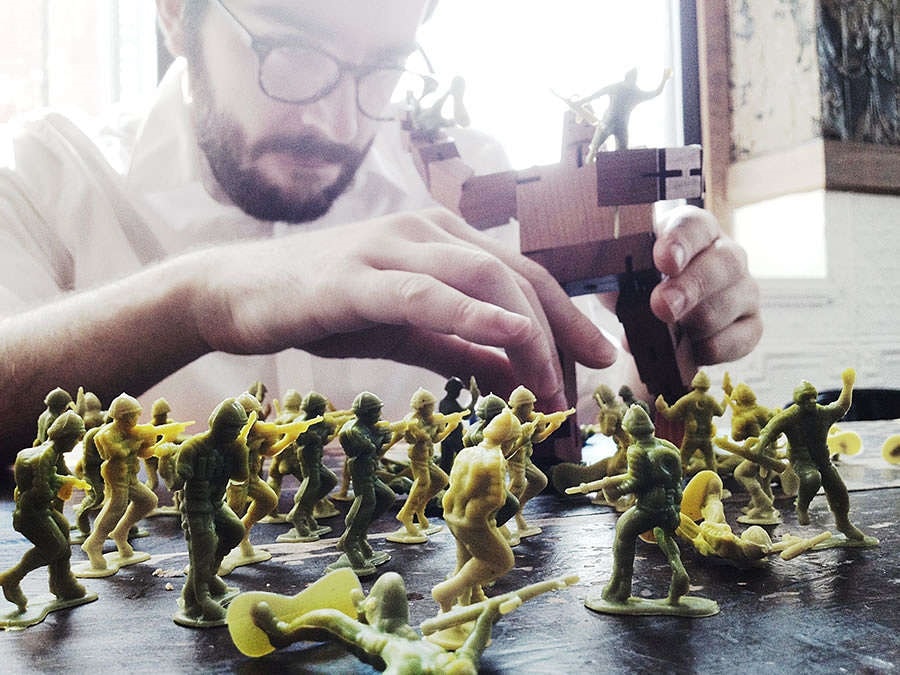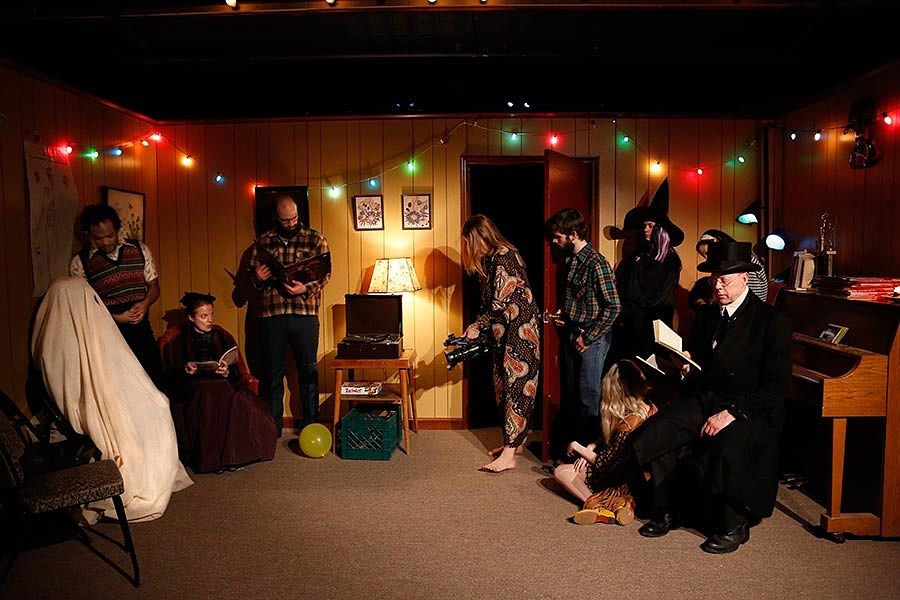NEW YORK CITY: A wise person once said there are two certainties in theatre: death and festivals. And though we at American Theatre love a good theatre festival, it is fair to say that not all festivals were created equally. Some exist to attract presenters in hopes that artists receive further productions and international tours; others are arranged around a particular theme, genre or artist. Some take on hybrid performance, others tackle just new plays, some have funding, others are scrappier but nevertheless celebratory.
In all the festivals out there, there’s one that continually breaks the rules and that I look forward to every year: Prelude. Hosted at CUNY’s Graduate Center in a humdrum part of midtown, Prelude—whose 2014 edition is wrapping today, Oct. 10—is an unlikely confluence of academics, newbies, all-stars and pros. Here are five things to love about it:
1. It’s Our Labor Day
Playwright Ken Greller recently joked to me, “Prelude is like our Labor Day.” While I initially laughed at this seemingly absurd simile, on further reflection I realized that Ken is absolutely right. Theatremakers are a busy lot, and even though Labor Day is technically in early September, the month inevitably flies by with the start of the academic year, autumnal holidays and new beginnings. Prelude occurs about a month after Labor Day, during the Wednesday, Thursday and Friday before the long Columbus Day weekend. People have their fall looks out, but no one is yet jaded with a full season of theatre viewing under their belt. It’s early enough in the year that it’s still reasonable to ask, “How was your summer?” and the question, “What are you up to these days?” doesn’t sound nearly as loaded as it does during springtime award season.

2. A Rotating Cast of Curators
This year’s Prelude was curated by four practicing theatre artists (Chloë Bass, Jackie Sibblies Drury, Sarah Rose Leonard, Allison Lyman) whose disciplines range from playwriting to dramaturgy to directing to hybrid artist. What?! You read that right. And yes, it’s totally awesome. While Prelude isn’t always curated with such quadrate aplomb, or by people who identify as artists, it does always have a changing roster of curators. That means that the work being shown is always fresh and always surprising. So unlike festivals with a staid artistic team where you can come to depend on seeing certain kinds of theatre (which is all fine and good), you really don’t know what you’ll get at Prelude. The fact that Frank Hentscher, director of the Martin E. Segal Theater at the CUNY Graduate Center, who oversees Prelude, takes risks on curators means that curators can take risks on artists. That’s risky business with a return on investment! And we like that.

3. Academic Setting and Narrow Hallways
I’ve mentioned that Prelude happens at the CUNY Graduate Center, and the importance of location cannot be overstated. The Graduate Center is a bustling academic institution. You can feel the learning happening; scientists and linguists buzz by amid the theatre glitterati. There are two theatres and an installation area that Prelude has the reins of at the Graduate Center, but life around Prelude trots on. Guests of Prelude must wait in a narrow, well-lit hallway, so there are many chances to bump into those people you haven’t seen since June or—gasp!—last year’s Prelude. The big lobby lets you breathe, the steps out front let you text, the narrow hallways let you bump into your pals, and the Prelude staff telling you to move for fire safety creates a cozy atmosphere. Being told to stand elsewhere also makes meeting new people all the less scary.
Prelude’s academic setting also levels the playing field. All the artists who are presenting—from heavy-hitting art stars like Young Jean Lee and Richard Maxwell to the fresh-faced recent grads—endure the same frenzied festival tech time. No one gets special status or treatment, and that’s democracy at its best. Everyone gets to flex their art muscles and applaud.
4. Short Run Times
This doesn’t mean we don’t like endurance theatre. Heck, we love it! But let’s be real: When you’re in a festival setting, you want to see a bunch of stuff and that can be a drag when a show runs over 2 hours. In a regular festival setting, the length of a show can start to warp your expectations, and then you end up resenting something you might have otherwise loved just because it was long and it meant you had to skip something else.
Not with Prelude. Despite the programming overload endemic to festivals, Prelude showings are mad short. Like usually 40 minutes tops. Which means that you can see five things over the course of an afternoon/evening and not be totally drained. Also, performances are in development so you are seeing pieces at various stages, which not only gives them a particular vitality but also an imperfect and alive quality. What’s more, there are installations on offer, and since the showings are short there’s usually a nice amount of time to mill about in these installations for have a chat and a coffee without feeling rushed or crushed. It’s not just civilized; it’s human.
5. Panel Animal and FREE
This one’s kind of twofer, but a) Did we mention Prelude is FREE? Yeah, it’s free. Gratis. Goose egg. Nada—free. That rocks. You get to watch a lot of cool snippets and not break the bank. Maybe you’ll get to see something you couldn’t afford seeing the proper production of, so at least at Prelude you get a taste. And b) There are also really cool panel discussions with theatre luminaries. So when you need a break from seeing the forefront of contemporary performance unfold, you can watch people talk about it.


